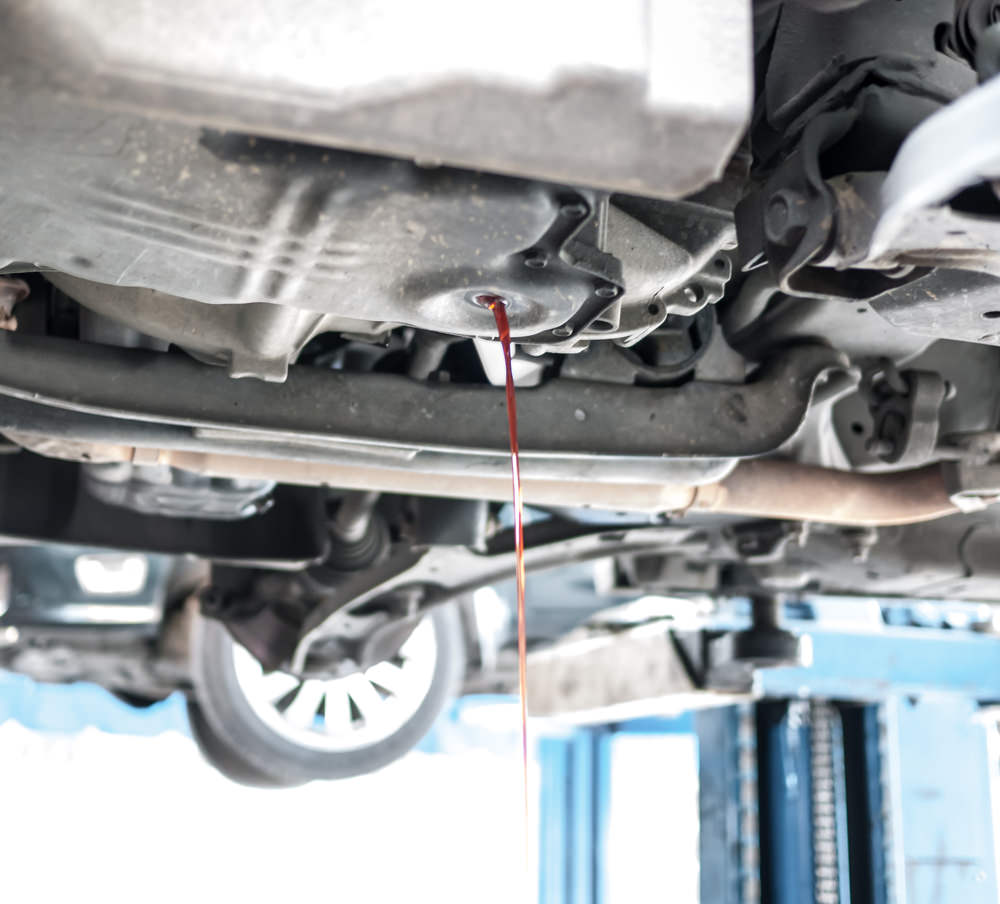

A vehicle’s transmission fluid system is closed, which means that the fluid or oil inside can’t escape when things are working properly. Therefore, when vehicles leak transmission fluid, it indicates another problem than just a need to add more fluid or oil. If your transmission leaks, however, don’t automatically assume the worst. There is a wide variety of causes for a leaking transmission, ranging from simple fixes to fairly serious issues. That doesn’t mean you should put off having your vehicle inspected. Even delaying easy repairs can lead to greater problems when ignored, which will ultimately cause a bigger headache and blow to your pocketbook later. Here are the most common causes of a transmission fluid leak:
Loose pan: The transmission oil or fluid pan is designed to catch extra fluid that would otherwise escape, so – if the pan is loose – there is nothing to prevent transmission leaks. The pan may simply not have been bolted back correctly after changing the filter or come loose while driving over rough terrain.
Oil pan gasket: High temperatures or faulty manufacturing can lead to a cracked or otherwise damaged oil pan gasket. Although this part is inexpensive to replace, more serious problems can ensue if the issue is left unattended.
Misaligned drain plug: After a transmission fluid flush or other transmission service, the drain plug may not have been screwed back in properly along the threads. This can lead to a leaking transmission but is relatively easy to set aright.
Damaged bell housing: When driving on gravel roads or on other challenging surfaces, it is possible for a rock or other item to strike the bell housing with such force that it becomes cracked or develops a hole where transmission fluid can escape.
Punctured or cracked fluid lines: Similarly, items picked up from the road and flung by the tires can strike the transmission fluid lines and cause transmission leaks.
Faulty torque converter: Less commonly, the torque converter, which is responsible for switching gears in automatic transmissions, may be damaged and allow transmission leaks. Unfortunately, this is a costly repair that is also difficult to diagnose.
Unless you are checking your car or truck’s fluid levels as part of general maintenance or notice your gears aren’t shifting as usual, you may not even know your vehicle’s transmission leaks. Another sign that there is a transmission oil leak is the accumulation of a red, slick liquid beneath your car, which may be the size of a small coin or much larger, depending on the severity of the transmission fluid leak. If you know your fluid is low or have seen evidence of a leak in a parking lot or driveway, call us for a consultation with one of our experienced mechanics. He or she can help diagnose the cause of your leaking transmission and make appropriate recommendations for repairs.



